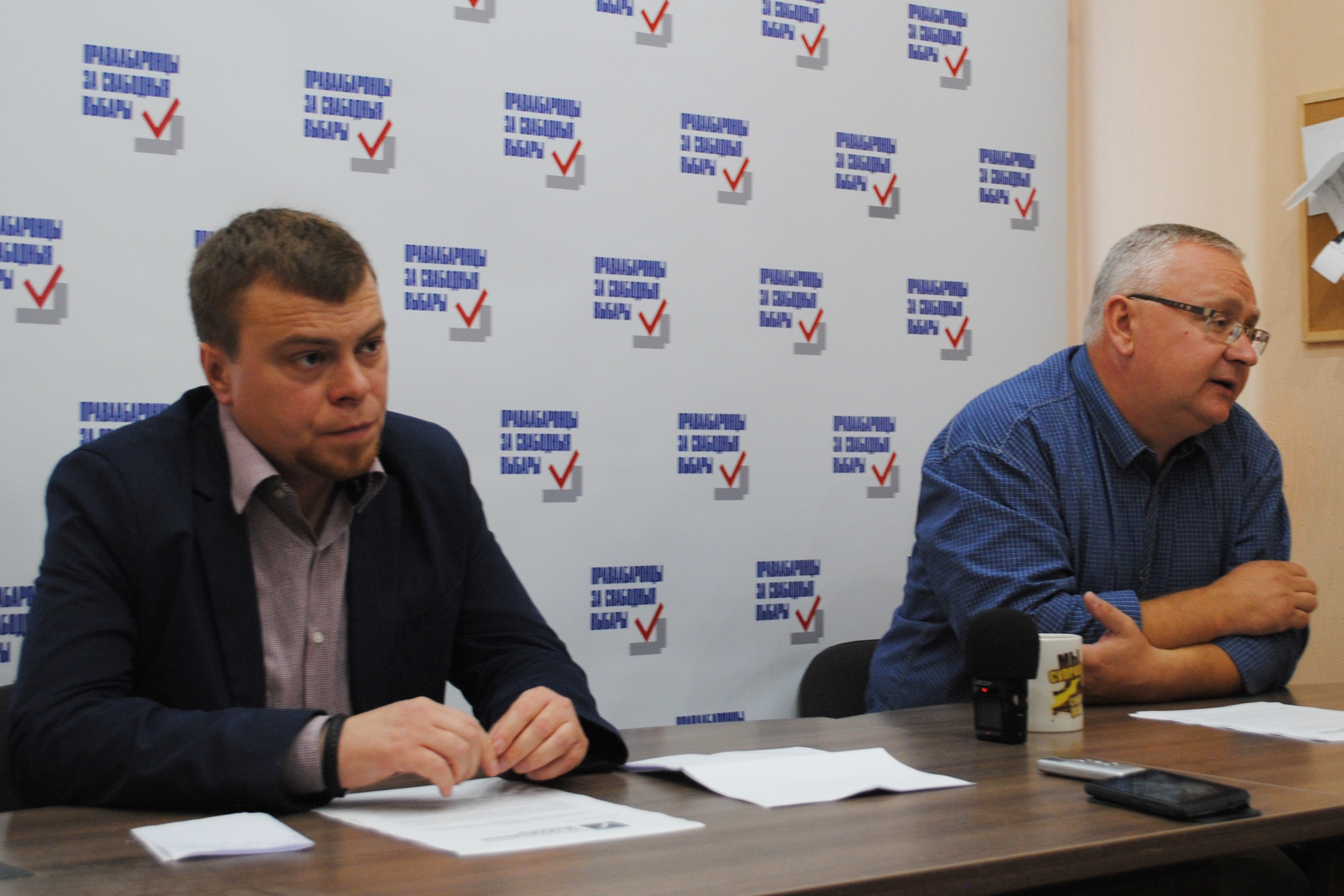Human Rights Defenders for Free Elections voice findings on first half of elections
Members of the campaign Human Rights Defenders for Free Elections have summed up the first half of the observation of this year’s parliamentary elections.
Uladzimir Labkovich, one of the campaign’s coordinators, said during a press conference on August 15 that the elections started on the background of changes announced by the CEC following the work of an interdepartmental expert group that was expected to consider the recommendations by the OSCE ODIHR mission. The amendments were aimed at changing the practice of applying electoral legislation, which has been repeatedly criticized by political parties, national and international observers.
The changes mainly concerned the formation of electoral commissions and the counting of votes.
“It should be noted that the changes helped the observers attend the meetings that form the election commissions. This gave more transparency to the procedure. However, the discussion of the so-called political qualities of potential candidates, as provided by the CEC’s decree, resulted in the fact that the meetings took more time, but the nature of these discussions was formal, just like before.
The proportion of representatives of political parties remains very low, which suggests that the institution of political parties in Belarus is in a degraded condition. At the same time, 54% of the commission members represent public associations, of which the vast majority are members of five pro-government organizations (Belaya Rus, Belarusian Republican Youth Union, Federation of Trade Unions, Union of Women and Public Association of Veterans). These organizations are the key NGOs that form the election commissions,” Labkovich said.
Human rights activists believe that the formal changes were intended to paint a picture of positive changes before the arrival of international observers, but the harsh administrative control over the election commissions remained at the same level.
Uladzimir Labkovich reminded that Belarus still holds political prisoners, among them Uladzimir Kondrus who is facing charges of allegedly taking part in protests after the presidential election of December 2010. This fact contributes to the atmosphere of repression against the participants of the election campaign.
The other coordinator, Aleh Hulak, recalled the recent case of the NISEPS Institute that announced its leaving political and sociological research in Belarus because of pressure from the authorities, and this in turn will affect the human rights defenders’ conclusions on voter turnout, irregularities in early voting, as well as support for candidates.
In addition, the human rights activist said that the observation covered 49 of the 110 constituencies. The observers also evaluated the final figures, which were provided by the CEC.
“The nomination and registration of candidates was not marked by any major differences from earlier parliamentary election campaigns. A positive step is that the collection of signatures was held in a calm atmosphere, with no significant obstacles to the candidates’ nomination groups. Individual incidents were usually resolved after complaints. Nevertheless, there were cases of the use of administrative resources in collecting signatures: as before, subordinate structures, such as schools and enterprises, were tasked to collect signatures for pro-government candidates,” Hulak said.
The human rights activist noted that there was more transparency in the verification of signatures as compared to earlier campaigns: 27% of the observers were able to see some aspects of the verification of signatures, while before these were isolated cases. However, human rights activists are not sure that signature sheets were selected for verification on a random basis.
“As a result of the registration, it can be said that there was greater activity by the candidates themselves. In 2008, there were only 365 nominated candidates, in 2012 — 464 candidates, while now there are 630 nominees. With more activity in nominating, we stress fewer refusals to register the candidates. In particular, in 2008 there were 23% of refusals, in 2012 — almost 25%, while this year there are only 14.8%,” he said.
The human rights activists point out that at this stage they cannot say that there was a clearly discriminatory attitude towards the opposition candidates, that someone was illegally denied registration. However, the process of appeals is still underway, and the final conclusions will be announced later.


















